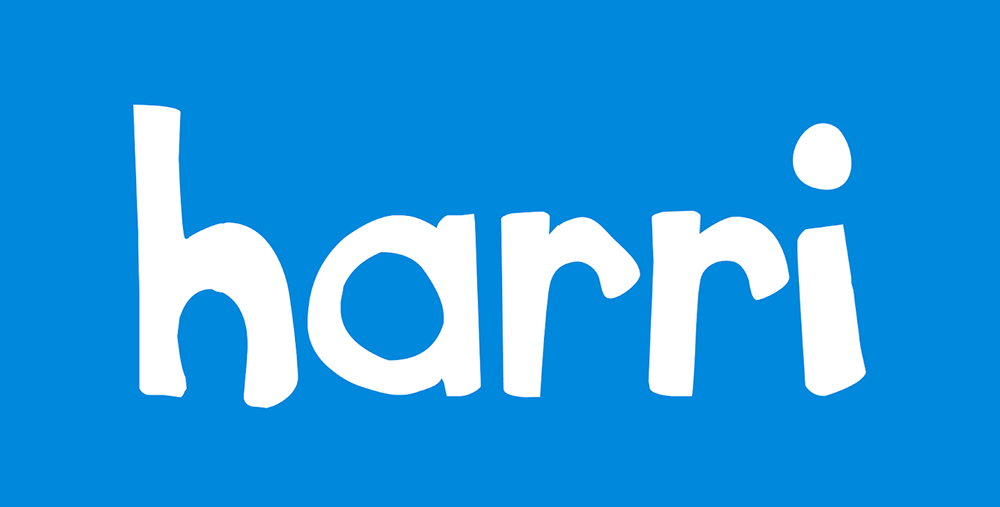Retention Webinar reveals the secret to a happy workforce
A happy workforce is key to boosting your bottom line. Panellists at The Caterer’s Retention Webinar shared their insights on how to engage your workforce at scale
Hospitality has a reputation for a high turnover of staff – exacerbated by Brexit, Covid and the ongoing cost of living crisis – but after a period of instability, there is a feeling that the staffing crisis is calming down.
“I think we’ve definitely started to see some improvement as the industry settles down a bit,” says Daniel Vale, group HR manager at Andrew Brownsword Hotels, which has 14 sites across the UK and employs 514 staff.
Overall turnover has improved – particularly within the first 90 days of someone starting a role. “We have seen about a 10% reduction in turnover in the first 90 days compared to last year, and then 12% compared to the year before,” he says.
However, certain roles such as chef de partie remain difficult to fill. “They were hard to find pre-Covid and pre-Brexit and they’ve got slightly harder,” he says. “We find chefs that would be a chef de partie [in the past] are now a sous chef and the sous chef will call themselves a head chef. So every time you recruit for a chef, you always have to look at their CV with a pinch of salt and meet them in person to see what they’re like.”
One solution is to focus on bringing people up through the ranks with in-house training, a solution that was identified by workforce management platform Harri in a recent survey.
“From data collected from shared job applications, chefs are the number one trickiest job to recruit for in London at the moment,” says Dan Maimone, global head of customer success operations at Harri.
Across industries, turnover within the first 90 days is up to 50%. “The reasons are varied, but it’s mainly down to satisfaction about a schedule and the promises people were made about the job versus the reality,” he says.
He also believes that since the pandemic people have become less patient if things aren’t working out: “If people are not getting what they want, they will go elsewhere to get the satisfaction they’re craving.”
Other operators are also cautiously optimistic about the staffing situation, despite the challenges. “Across the board, we’re performing better than 2019,” says Prudence Stamp, head of people and culture at Urban Leisure Group, which has eight venues predominantly in London.

“The one [role] that does stick out and has the highest rate of that zero to 90 day attrition are kitchen assistants,” she says.
“A strategy to try and curb that is to be very honest with people about the role – and for all roles at Urban Leisure Group. Nothing will drive somebody out the door faster than saying, ‘It’s fantastic, it’s perfect, you’ll never work late, it’s all going to be so easy.’ And then they realise: ‘hang on, I’ve been sold a lemon’.”
Finding the right people
When it comes to attracting people into those hard-to-recruit positions, increasing wages isn’t always the right tactic, says Liz Flynn, people director at Cubitt House, which has eight sites around Chelsea and Belgravia in London.
“I think generally salaries have gone up in most roles within hospitality because it’s hard to get the right people or even just get people in some cases,” she says. “There are certain roles, like possibly the chef de partie, where you’re having to pay an inflated salary to get somebody in, but in many cases you cannot afford to pay them more or it’s not the right thing to do, because you are creating an imbalance.”
To tackle this issue, Cubitt House has partnered with a number of chef colleges to take on staff earlier and help put them through catering college to get talent into the business.
“Obviously, you’re starting earlier and it’s a time investment and a monetary investment,” she says, “but I think we have to be creative in this market.”
Investing in staff isn’t just for those who want a long-term career in hospitality, either. Cubitt House recently put in place a ‘champions’ programme to help staff with a particular interest in areas such as wine, coffee or cheese, to feel valued and engaged.
“We send that person off for intensive training, and they’ll do briefings on what good looks like when it comes to a Cubitt House cappuccino, for example,” she says.
“[It’s saying] we know you don’t want to be a general manager one day and that’s OK. You are still really important and you can still take away a lot from working with us.” While not everyone might want to be a manager, others end up in those positions by default. Ensuring the right people are in the right roles is crucial. “Accidental managers is something I’m starting to see more of,” says the Urban Leisure Group’s Stamp.
She cites a recent Chartered Management Institute survey that found 82% of people who currently hold a management role have had no formal leadership or management training. It also found just 25% of respondents rated their manager as highly effective. Those who didn’t rate their manager as highly effective were twice as likely to leave in the next 12 months.
“You can draw a straight line between these under-qualified, over-promoted managers and people leaving.” She adds: “But it is important to note it’s not their fault – they’re not being equipped with the tools they need to do the job.”
Vale recognises this scenario. “We ended up with a lot of unplanned managers and we’ve tried to combat that in the past few years with a very clear pathway of training,” he says. This involves a mixture of online courses and in-person training and coaching, which is a requirement to move up. “People work for people and if they have an unskilled, untrained manager above them, quite often they leave.”
Automating intelligently
Undoubtedly, there is an administrative burden associated with management roles, which is where technology can often step in.
“For accidental managers, [there are] tools you can give them to take some of those crucial operational things away,” says Maimone. “At Harri, for example, we see more people adopting our scheduling tools, so employees can enter their availability and when they’re off – it can auto-schedule employees based on their [skillset] as well.”
There are also features that can aid junior managers with staff forecasting. “That has a detrimental impact on the business. If you under-forecast on a Saturday, staff are under pressure and then, all of a sudden, people start leaving,” he says. “It’s about how you can empower [staff] and take away some of those pain points.”

Stamp has found these tools can help remove the ad hoc nature of scheduling: “Something we’ve been able to harness through Harri is unavailability or holiday submission. It really does annoy people as well, when a manager forgets that I’ve submitted unavailability or denies this time off for a gig because they haven’t been organised.”
Cubitt House’s Flynn agrees that these processes should be automated where possible, but says the purpose should be to give managers more time to interact with staff on a personal level. That approach can sometimes lead to unintended business benefits, which Flynn discovered after a serendipitous conversation with a member of staff.
“We had a lovely lady we took on as a hostess in one of our sites. One of the things that helped with recruiting her was we changed our stance on flexibility, because she is in her late sixties and semi-retired,” she says. “And it just so happened that she was an English teacher in her previous career.”
As the group has a percentage of people who don’t speak English confidently, that led to the idea of asking her to provide lessons. “She coaches them and we’re really beginning to see a difference in that population of people.”
For Flynn the lesson is clear. “Let the systems do what they are better at – doing payroll, compiling stats, making us more effective at doing the rosters – but that should be to enable us to have that human touch.”
Advice for retaining staff
Our panel of experts provide their top tips.
Don’t assume
“Ask people what they want in terms of benefits,” says Stamp. “I think we’re very tempted to just impose things we think are good, but not everybody wants a yoga class or a gym discount. We asked our team what they wanted and it was hospitality discounts. They’re bar tenders and front of house staff and they love wine, so we got them cost-price wine through our suppliers. Don’t assume that everybody wants something, because it’s seen to be the thing.”
Provide support
Maimone say Harri has seen an increased interest in wellbeing support: “Make sure you’ve got wellbeing access for your employees, especially in those junior manager roles, such as helplines to call if they need support and guidance,” he says. Any benefits should also be communicated across the business and made fully accessible. “There’s nothing worse than launching benefit schemes that no one knows about or how to log in. Make sure everyone knows about it – people in the stockroom should know what benefits are available – that’s key,” he says.
Hire tactically
“Recruit well, train well and be inclusive. And when it comes to retention, make sure you’re retaining the right people,” says Flynn.
“We’re very inclusive, we like to think we're very kind, we look after our people, but if there are any elements of toxicity or somebody who shouldn't be there, [it’s important not to] let the situation fester. There is a view that you should be getting that person to a place where they don’t feel like that, but ultimately, if it’s not for them, it’s better to help them with what their next stage is.”
Keep talking
For Vale, it comes down to one word: communication. “We found the more we involved the team in terms of what we’re doing as a business – what benefits and perks we currently have and what we're looking at in the future – [the more] the team have a voice. They know where we’re going and we understand their personal reason for being with us.
“We want to help them understand that we are moving forward,and give them a sense of personal direction, so they can be on that journey with us and not just come in for a job and a pay cheque.”
About Harri
Recognising the pivotal role of staff engagement in retaining employees, we were excited to support the Retention Webinar, spotlighting best practices from Harri clients doing great work in the People space.
Excessive turnover plagues the hospitality sector, and low employee engagement adversely affects both businesses and their workforce. That’s why we introduced Harri Engage, a revolutionary new way to communicate with your teams and understand how they are feeling about their role in your business.
Regular feedback empowers managers with confidence and actionable insights essential for the success of retention programs.
Learn more about Harri Engage at harri.com/engagement


















